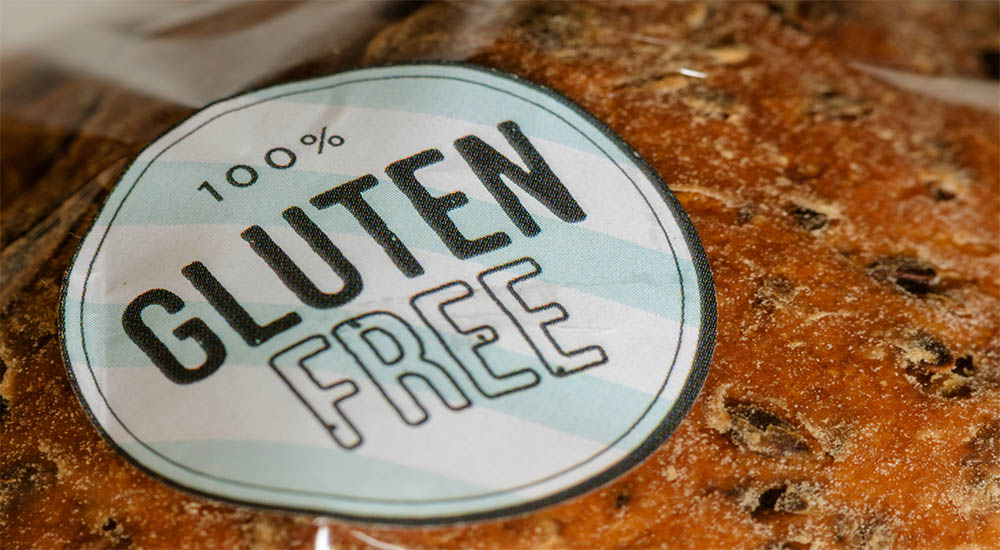Labelled ‘Gluten-free’ but Still Contains Gluten? Yes!

 Labels are only ‘Mostly’ Correct…
Labels are only ‘Mostly’ Correct…
If you’re gluten intolerant you know the fear associated with inadvertently eating gluten. There aren’t many of us who haven’t had a ‘mystery reaction’ of some type and found ourselves perplexed about where it might have come from, despite our best efforts.
Being diligent in reading labels and asking about ingredients should be enough to ensure safety. But what if a labeled gluten-free product actually contains gluten? And what if the manufacturer did it completely unintentionally? Had you asked me if this was possible I would have said “doubtful” prior to learning about some new research just released from Madrid, Spain.
Researchers Find a New Method of Determining Gluten in Food
There, researchers noted that the standard method of evaluating the gluten content of food might be falsely negative (meaning it shows no gluten present when indeed there was) due to the nature of the food being tested.
Let’s define a term: hydrolyzed. Hydrolyzed means that a compound is broken up into its component parts due to the addition of water. This process typically requires heat as well. You can think of it as decomposition or breaking down of food, particularly its protein structure, which is what gluten is.
The specific foods looked at in this study were beers, baby foods, and syrups. Hydrolyzed vegetable protein would also fall into this category. Not all such vegetable protein is made from a gluten-containing grain, but if it is it will state it on the label.
Hydrolysis causes the gluten proteins to fragment (break apart) resulting potentially in the classic testing method for gluten to be erroneously false. You can almost look at hydrolysis as a pre-digestion process that alters the gluten protein in such a fashion as to create a negative test.
The Trouble is with Hydrolyzed Foods
These savvy researchers realized this ‘loophole’ and came up with a more sensitive test that they believe to be more appropriate for these types of partially digested or hydrolyzed foods.
It certainly seems to be more sensitive when you hear their results from testing six commercially available beers. All these beers were ‘believed’ to be gluten-free but upon testing, their gluten levels were found to be anywhere from 68-218 ppm (parts per million). This is way above the accepted level of 20 ppm that is allowed in a gluten-free product.
Needless to say, this is extremely important research that will hopefully make it into mainstream testing of appropriate food products. It wouldn’t be necessary for all foods, only those that are hydrolyzed as mentioned above.
It’s Inexpensive to Find out the Truth
More good news is that according to the researchers, this testing method is cheaper and faster than the traditional method, so there need be no excuses regarding it being cost-prohibitive. In the meantime, I recommend that you get familiar with the types of foods that are hydrolyzed and, if you tend to consume them as part of your diet, seriously consider avoiding them, especially if your health is not at the level you desire.
Fortunately hydrolyzed foods are not very common and as a clinical nutritionist, I don’t consider them to be especially good for you generally speaking. But likely their ingestion is having negative effects on unsuspecting individuals suffering from celiac disease and gluten sensitivity. So let’s spread the word and keep awareness of this high for our fellow gluten intolerant friends.
For those more scientifically inclined, the name of this newer test is R5 ELISA, and the current test that is in use is called: sandwich R5 ELISA. Have you eaten such foods and gotten a reaction? I’d like to hear from you.
Do you need help with your health?
We have the diagnostic and testing tools, the clinical experience, and a different medical approach to discovering the root cause of why you have the symptoms that are bothering you. As long as you are ready to make some dietary and lifestyle changes, we can help you. We will "hold your hand" through the changes, step by step, to make each step an easy one. We are located in Clearwater, FL, at 1000 S Ft Harrison, at the corner of Ft. Harrison Ave. and Magnolia St. There is plenty of parking space directly accessible from Ft Harrison. If it is not convenient for you to come to Root Cause Medical Clinic, we offer telehealth/telemedicine consultations to residents of certain states. Call us for details.
Contact us for a Consultation – Call 727-335-0400

Dr. Vikki Petersen DC. CCN
Founder of Root Cause Medical Clinic
Certified Functional Medicine Practitioner
Dr Vikki Petersen is a public speaker, author of two books, several eBooks and creates cutting edge content for her YouTube community. Dr Vikki is committed to bringing Root Cause Medicine and its unique approach to restoring health naturally to the world.
Ask a Doctor
Have a health concern you'd like to speak with a doctor about? Or just want clarity on a subject? Ask Us!

 Labels are only ‘Mostly’ Correct…
Labels are only ‘Mostly’ Correct…
